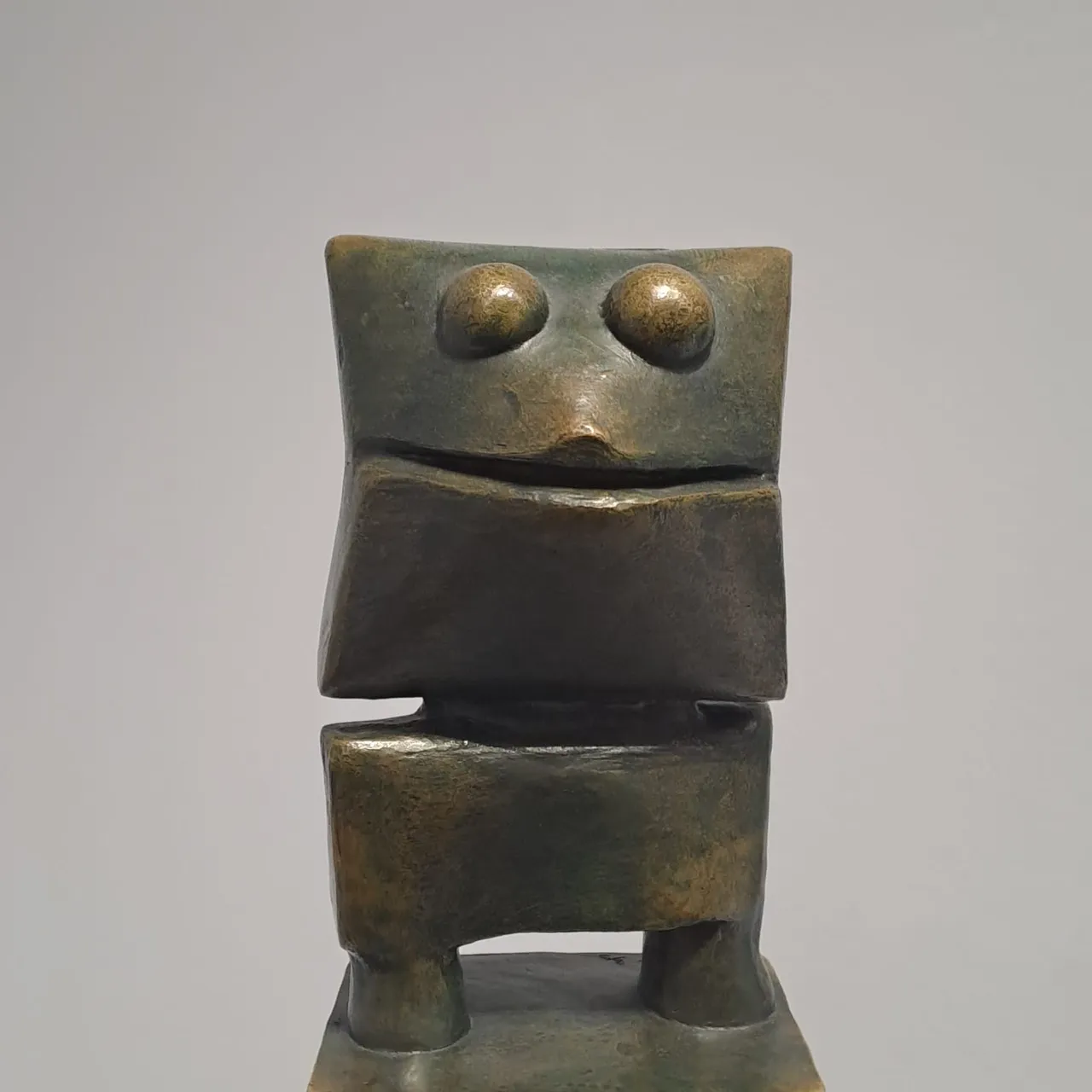It seems lately, there's so many good voices warning against the dangers of being excessively agreeable, there really is no excuse for it anymore. All the disease, misfortune and plain unpleasant situations it creates, and yet, in spite of it all, I find myself slipping back into old habits. I'm a bit too nice when I don't catch myself in time.
Of course, it doesn't help that we (especially women) live in a world that tells you to victimize yourself instead of asking - where could I have set better boundaries? How could I have expressed myself more correctly?

You remember Miro, don't you? I didn't go looking for him in Vienna, but here he was, just squirreled away.
I found myself in a situation recently where I kept coming up against a wall. I seem to attract persistent people, which is in itself a question worth exploring, but I kept waking up in interactions with someone who simply wouldn't understand what I'd said or that I meant to stick by my decision.
Naturally, at first I thought what a cunt. What a creep.
But then, I caught myself. That self-victimizing I'm wary of. I thought wait a second. While this person is being somewhat insistent, I am not a straw figure in a funny hat. And if this situation persists, how am I contributing to it?
After all, we're all designed in such a way as to try to game the system, tilt the table in our favor. Mostly, we do it in small, innocent ways, as was the case (more or less) in this situation also. Still, it nagged, and so I started going back through the way I've been conducting myself in that particular interaction, trying to get a better understanding of the how and why this person wouldn't hear me.
Was it some kind of personal mania of his, or was I failing to communicate my own boundaries and rhythm? The thing is, none of us want to fail. Ever. So we tend to ignore these little ways in which we sabotage ourselves and blame it on the other guy, which naturally means we take a lot longer in learning things. It's no good. Time here is already so worryingly finite.
I realized, to my surprise, that while I believed (genuinely) I was just being nice and honest, I also wasn't making my feelings or attitude clear. See, I say things a certain way, and presume to know what each word is supposed to mean, how it's meant to be interpreted. Though on closer inspection, I had to admit my words could easily be read back-to-front. They'd carry a completely different meaning, but remain at the end of the day intelligible.
The next thing I did was wonder why I was refusing to put my foot down more firmly. A compulsive need to be perceived as 'nice'? The humane, all-encompassing need to be liked? Did I perhaps invite this person's insistence? We don't like to think of it in such ways, especially now, yet we often do just that. The scary truth is, we teach strangers so much about how they can behave around us, and then those strangers become our friends, lovers, companions, and take on certain mannerisms that we one day wake up and realize we abhor. Well, how did that happen.
Some people waste entire lifetimes in situations, wishing the other person would wake up and start treating them better. Wondering why. It almost never crosses their mind that their own behavior might be at fault here, at least in part.
In my case, it became clear pretty quickly that just because I'm told women should beat about the bush, I have no reason to do so. That a desire to be liked or perceived a certain way is not necessarily a positive attribute, especially if it's putting me in an unpleasant situation. And also, that if I insist on not stating my own limits and desires, then I'm not really in any position to complain when they are ignored. We often do. Complain. When people behave how they think is right, not how we think is right. Except, how are others expected to know?
I started thinking how can I be saying this different, more clearly, in a way where 'no' can't be misinterpreted as 'yes'?
It's funny, in recent years, I've read so much about the perils of toxic niceness. I think I know. And yet, I'm engineered not to know, to compulsively forget attitudes and mentalities that are in fact good for me. See, I try to keep up with the way my mind works, but it's not always easy. Instinctually, I deceive myself. Run circles around myself. Bullshit myself. As a great teacher once said, you can never lie to yourself, you can only bullshit yourself.
That's an important distinction. You can buy lies. You never completely buy bullshit, which also suggests that if you are in the dark about certain things, or find yourself (like me) in unpleasant situations, you may just be willingly buying into them.
Time to put it back on the shelf, eh?
How are you bullshitting yourself lately? And are you also in the "too nice" group? (come in, we have cookies and everyone secretly wants the last cookie, but no one's ever going to say)
